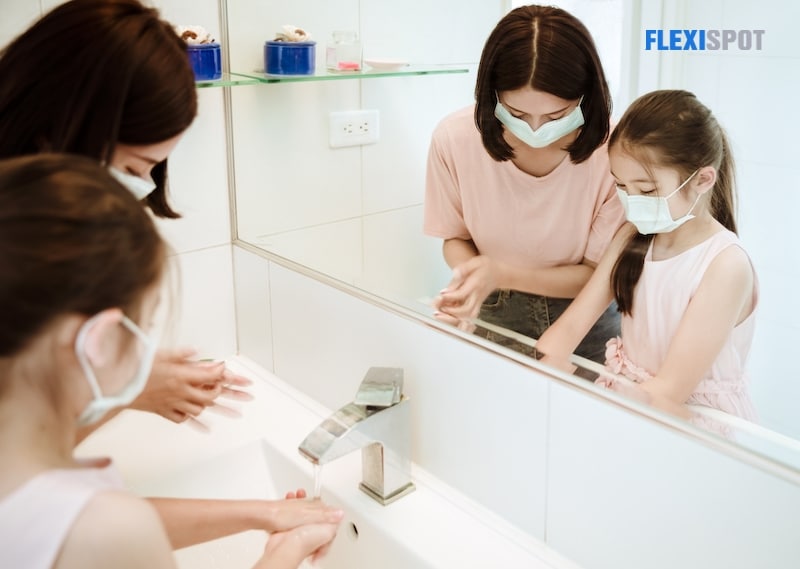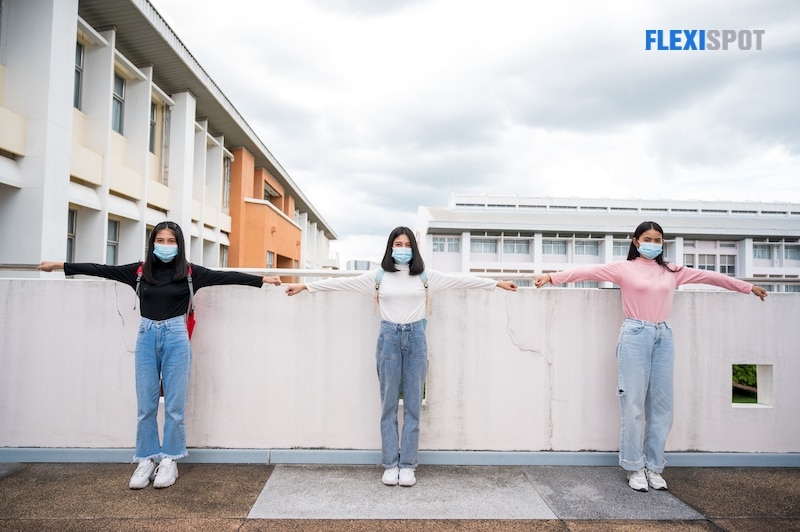Finally, school starts and everyone can see their friends again and get back to normal life as they know it. After a year of online schooling and being stuck at home, it’s high time to be able to learn and study the way it has always been. It was a difficult year trying to learn online and studying primarily through Zoom classes. Doing things with the limitation of online classes without tangible socialization is hard for most.
Now that schools are opening, it’s going to be normal for the most part.
However, students and children need to keep in mind that they still need to take care of their health.
Vaccinated people can still be carriers or get sick with the virus, however, it would not be so severe and at times hospitalization may not be necessary.
Over time we will have herd immunity if most are vaccinated. But now and in the future, it would be best to be safe, clean, and healthy. That way, we could keep enjoying the things we love to do, avoid the expense and high cost of medical bills and the pain and suffering that accompany illness.
Depending on CDC guidelines, a mask would help protect a child’s health. Usually, five years old and below are not required to wear masks. Children from the ages of 6 to 11 can wear a mask if there is a widespread infection in the state or if they are at a specific setting where there are people who are at high risk of developing an illness like the elderly or people with underlying conditions regarding their health. For those students who are 12 and up, they should wear in certain settings where a one-meter distance among people would not be possible at all times.
The children and students must also be aware of wearing a mask properly.
That way, they will maximize the utility of the mask and also maximize its protection from the coronavirus. It would be hard to remember for kids at times but when they are taught well, children can be very responsible also.
The first thing that they need to remember is that they need to have clean hands before putting a clean mask on. A mask can be used the way underwear is used, it must be washed as often as it gets dirty. Teenagers would find this tip useful, so as to prevent having masks for acne that you can get from wearing dirty masks.
The hands must be clean before and after the mask is taken off. Fitting the mask is also something you need to consider; a mask must be able to cover one’s nose, mouth, and chin. When you take off the mask, be careful not to touch the front of it. For reusable masks that need to be cleaned, you can either soak them first with bleach and hand wash them or just pop them in the washing machine. If it is a medical mask that is not reusable, please dispose of it in the garbage bin.
Regular washing of the hands thoroughly with soap is a very important thing to remember for students when they get home from school or they have been outside the home. At least 20 seconds of lather with soap would ensure that the virus is out of the surface of the skin.
Having a hand sanitizer like ethyl alcohol in their bag for their convenience would also be a good idea. That way when they touch things or surfaces, they can sanitize their hands at their convenience. This is also advantageous too when going to the bathroom to wash their hands as frequently would not be possible.
Social distancing is a phrase that has been prominent in everybody’s vocabulary whether it be in the media, internet, or among quarantine peers and family.
It is a good measure to lessen the risk of transmission from one person to another apart from masks and cleanliness. Exhaled droplets from other people’s noses can travel to surfaces especially on the skin.
Depending on sunlight, sanitation, and temperature the virus can survive on glass for five days, on wood for four days, plastic and stainless steel for three days. Similarly, the virus can stay in cardboard for a whole day and copper surfaces for four hours.
On human skin, it can stay for up to nine hours, just enough for it to spread from one person to another. For us to be able to prevent the virus from coming into contact with our skin, a social distancing of six feet or more is a good habit to practice.
As we take care of hygiene and keep ourselves clean following the health guidelines, we should also take care of our inner body. Maintaining a healthy diet and exercising is a great way to strengthen our immune system not only from the coronavirus but also from seasonal illnesses like hay fever and the like. It would also raise happy hormones in the human body which is necessary for children and students as they adapt to a global pandemic. A 20-30 minute exercise and physical activity every day are the basics they need to undertake to keep the body active and not sedentary.
A good study routine should also be established at home. That way, they would not cram during exams and quizzes. Any surprise quizzes or tests will also be easily undertaken if this is followed. In order for them to study well, as parents, we should create a space conducive to learning and focusing. No social media or video games on the hours that should be spent on studying. Following the Pomodoro technique or 25 minutes of study and five- minute break for each topic will help them focus better.
The Height Adjustable Ergonomic Study Desk from FlexiSpot is a great choice for children and students. It is an environment-friendly desk with an anti-collision frame for your child’s safety. In addition, It is designed to be sturdy such that it grows with your child; therefore, it is cost-effective. Check this product out on the website for more details. It’s just a click away!



